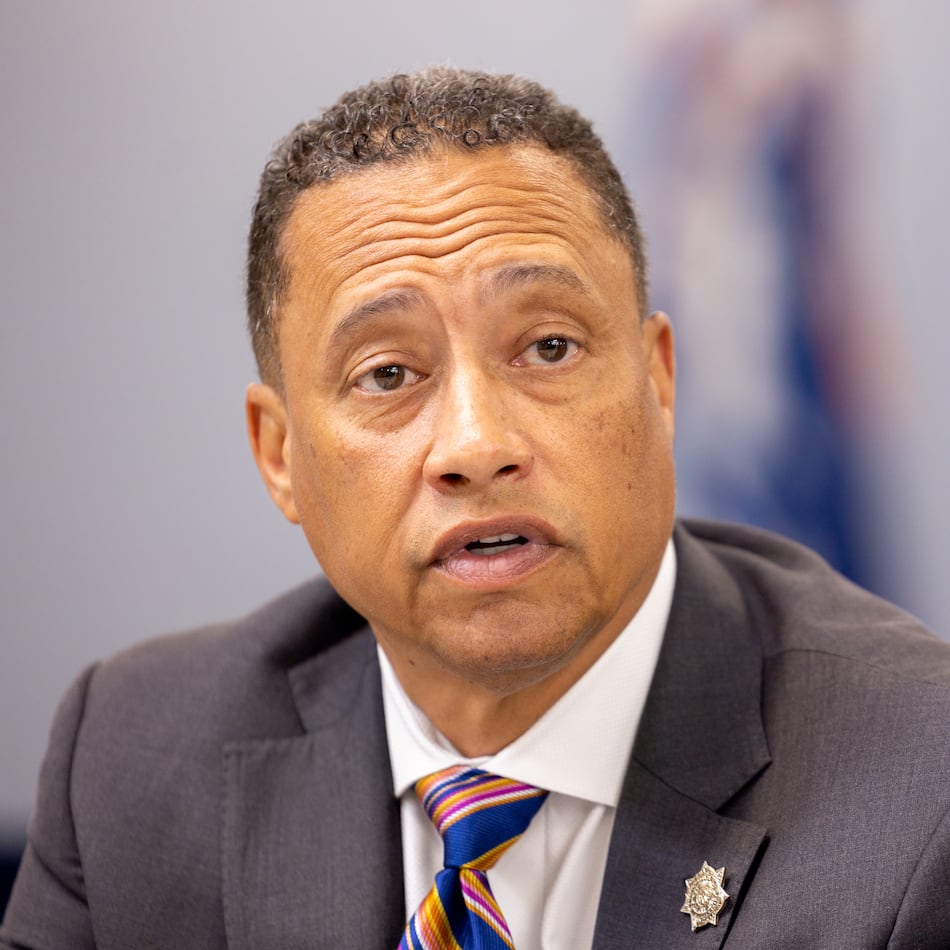As Garry Phebus sees it, he’s going to suffer a lot and then die within the next few years, so why not donate his organs -- heart, lungs, liver -- now, while he's alive.
An idea that is appalling and unfathomable to some makes perfect sense to Phebus and his family.
“Everyone we’ve spoken to has had an initial reaction of shock,” said Patti Phebus, Garry Phebus’ wife. “He doesn’t really have much to look forward to,” she said.
Patti Phebus said those who initially shuddered at the idea seem to understand once they point out scripture they say supports their decision -- John 15:13, which reads, "Greater love hath no man than this, that a man lay down his life for his friends." They also use in their arguments the examples of firefighters, police officers or soldiers who sacrifice themselves for someone else, she said.
"What better thing can I leave for other people?" Garry Phebus said.
Garry Phebus, 62, said he was diagnosed in 2008 with Lou Gehrig's disease -- ALS or amyotrophic lateral sclerosis.
His vision is doubled and blurred. A machine helps him breath while he's sleeps. And He is unable to walk more than a short distance.
“I know I’m terminal,” Garry Phebus told the Atlanta Journal-Constitution on Monday. "I can’t walk down the street. I can’t even put a stupid nut on a bolt. All I want to do is stay in my room. I can’t handle things.
“I have a blindfold on and they’ve marched me up the wall and I’m waiting for ‘ready, aim, fire,’” he said.
Garry Phebus, who lives in tiny town of White in eastern Cherokee County, has convinced his four adult children his decision is right, but no doctors are willing to help him, Phebus said. He also called several European countries in hopes of finding a way to donate his organs while he is still alive, his wife said.
"I already have a death sentence, so what’s the difference?” Garry Phebus said. “I had doctors and nurses telling me it’s unethical. But I don’t have a life to live.”
The difference is taking organs from a living person is illegal and ethically wrong, said John Banja, an ethicist at the Center for Ethics at Emory University.
"A health care provider can't commit homicide," Banja said. "If you cut him open and take his organs while he's still alive, you are committing homicide."
But such a practice also could cause the public to wonder if a doctor was thinking more about the person who would benefit from a transplant than the terminally ill person they are treating.
"If we were to allow something like this to happen, even with the full consent of the patient,. we would be going down a slippery slope," Banja said.
"To prevent that kind of thing from happening, we maintain the dead donor rule," Banja said, explaining that a person's brain no longer works or their heart has stopped and they are no longer breathing and cannot be revived..
Assisted suicide is allowed in three states, but in Georgia it is illegal.
For example, in neighboring Forsyth County, next to Cherokee, charges are pending against four members of the Final Exit Network for allegedly helping 58-year-old John Celmer end his life.
Patti Phebus concedes her husband is unlikely to get his wish. But he thinks he will.
One of his adult daughters helped him produce a five-minute video he has posted on YouTube to make his case.
“I’ve thought about this for a long time,” Garry Phebus, sitting in front of a blank wall, says to the camera. “I’m not suicidal. I just. It’s just a matter of time before I die. ... What better thing can I leave for other people?”
He said he has been tested and all of his organs are healthy and he repeats often that his blood is O positive, which means he can give to anyone regardless of their blood type.
Crystal Jackson, the patient services coordinator in the ALS Association’s Atlanta office, said ALS patients “have a hard time donating organs because of the ALS." She said doctors don't know how organs are affected by ALS.
"I'm sure my organs are viable. And I realize what I'm proposing can be controversial," Garry Phebus said.
Banja recalled an uncle who died of ALS. "It's a terrible, terrible disease," Banja said. "It's a rough way to go. It kills you from the outside in."
ALS affects the nervous system, and eventually the ALS patient cannot speak, swallow or breath.
There is no known cure. According to the ALS Association, the average life expectancy is two to five years, though some patients have survived as long as a decade after they were diagnosed.
“They’re interested in donating their organs after death for research,” Jackson said. “We don’t hear they want to donate prior to dying.”
About the Author
The Latest
Featured

